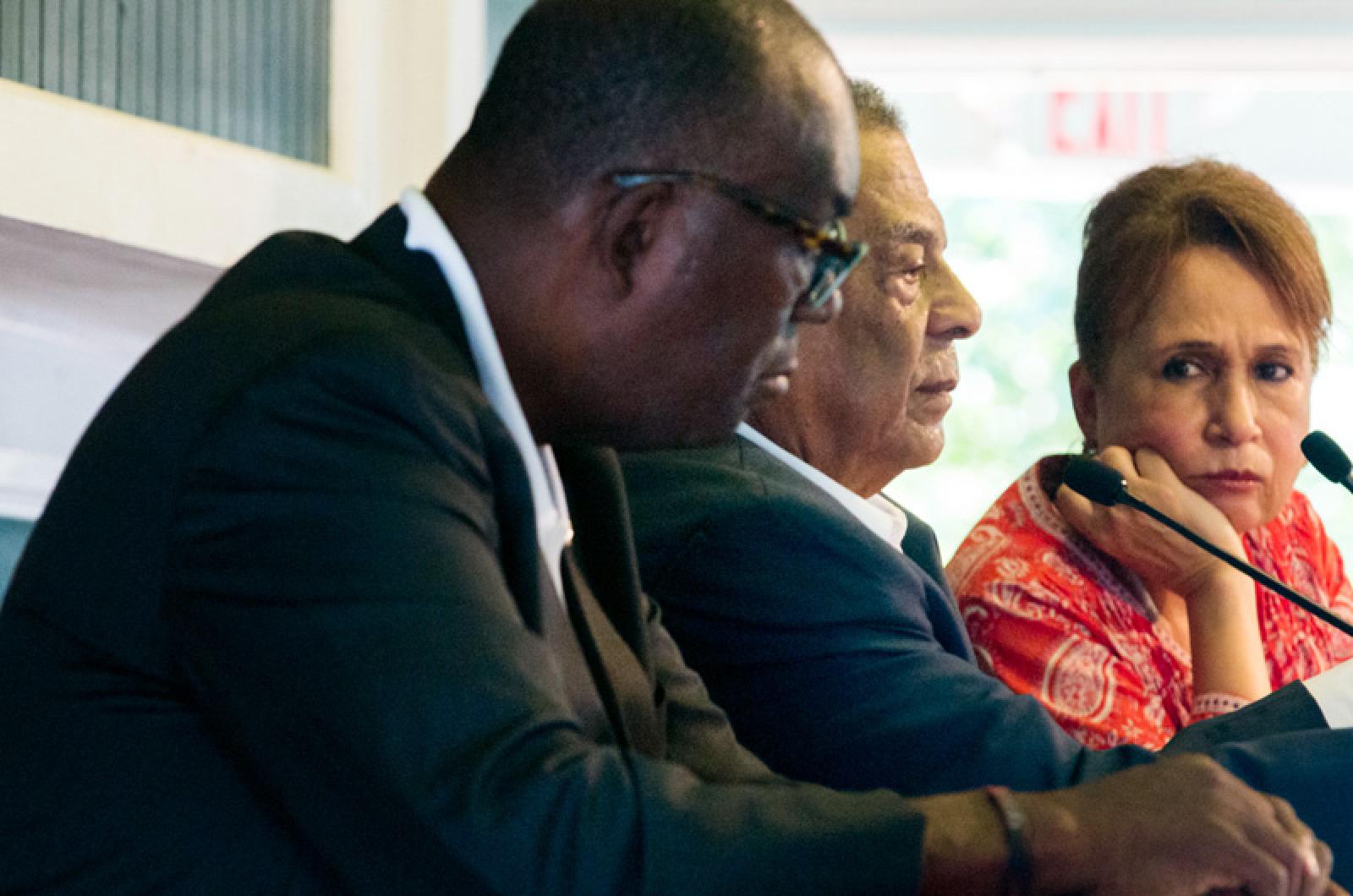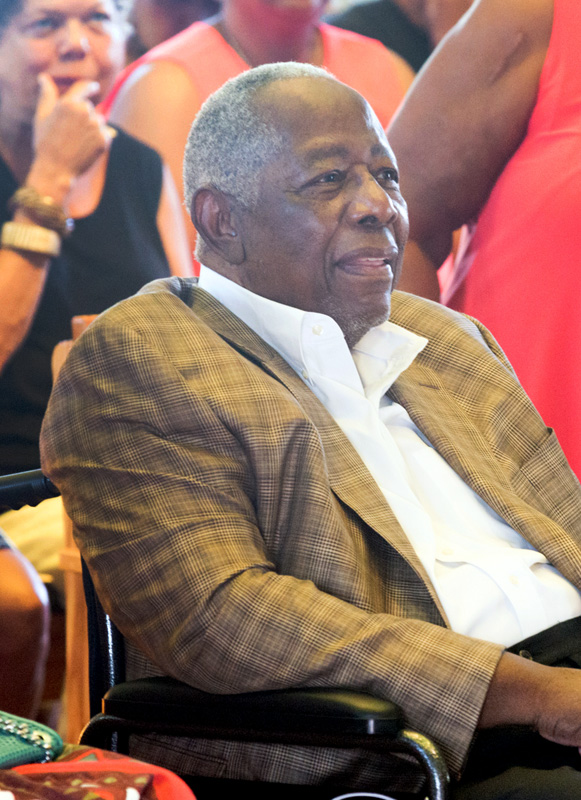A panel debate Sunday at the Union Chapel over how economic issues play into the social justice movement shifted quickly in the wake of weekend events in Charlottesville, Va.
The event at the historic Oak Bluffs chapel was standing room only. The featured panelists were Harvard Kennedy School professor Khalil Muhammad and Andrew Young, a civil rights leader and former ambassador to the United Nations.
Alexis Herman, former Secretary of Labor during the Clinton administration, opened by asking the panelists for their reactions to the weekend of violence in Charlottesville during a rally by white supremacists.
“Nazism and white supremacy is a sickness,” said Mr. Young, drawing on his childhood experience growing up in New Orleans just 50 yards from Nazi party headquarters. “You don’t get upset at sick people. You don’t get mad, you get smart.”
He stressed the importance of keeping the focus on what he said is the most important issue at hand — economic inequality.
But Mr. Muhammad responded that the issues of economics and race are inextricably linked. “The way money has moved through the world has depended upon subsidizing Europeans . . . at the expense of indigenous people, whether it be their land or their labor,” he said.
He said it is critical to give history its due. “We can’t now move past that, because part of the anxiety that’s being expressed by white Americans … is precisely because their economic futures depend on at least greater proximity and shared insecurity with black and brown folk.”
Mr. Young replied: “The real game is not the racists. If we can get beyond race, into the substance of our problems, we’re better off than if we focus on racial differences.”
Citing as an example the lack of enforcement of non-discrimination clauses in the distribution of GI bill benefits, Mr. Muhammad said: “Trickle down benefits never quite trickle down anyway, that is the historical lesson of those universal policies.”
He said for social justice to advance, institutions must change. “The fight is really about systems that perpetuate norms that are predicated on notions that black people are a threat to civil society,” he said.
He criticized prominent Republicans, including Paul Ryan and Orrin Hatch, who condemned the weekend’s events. “It’s very easy in the 21st century to condemn white supremacists essentially behaving in the very old fashioned way,” he said. “We would rather kill government than make sure that government is the arbiter of our collective humanity and social justice.”
Mr. Muhammad suggested that looking ahead, an individualistic notion of black achievement and success is not enough to advance the social justice movement. The best off are obligated to help the worst off, he said. And those who hold positions of power must work to change the values of the institutions in which they operate.
Mr. Young agreed. “To them to whom much has been given, of them is much required. It’s not about you, it’s about what you pass on,” he said.
The panel was co-hosted by Clark Atlanta University, a historically black university in Atlanta, Ga. President Ronald Johnson introduced the panelists and spoke briefly. Alumna Billye Aaron and her husband, baseball legend Hank Aaron, also attended. Mr. Aaron was honored briefly during the event.







Comments (2)
Comments
Comment policy »